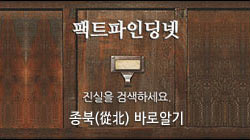The leading poet of English of the period, W. B. Yeats, shifted direction in his own poetic development in response to his reading of Nietzsche. Among German poets Rainer Maria Rilke and Stefan George were influenced by Nietzsche, as were Thomas Mann and Herman Hesse among novelists. As for French writers, the names range from Andre Gide and Andre Malraux to Albert Camus and Jean-Paul Sartre. In the light of all this it can be confidently be claimed for Nietzsche that he had more influence on European writers of the front rank than any other philosopher after Karl Marx―if indeed Marx can be satisfactorily thought of as a philosopher.
More surprisingly, since one does not easily expect a philosopher to be taken up by composers, Mahler, Delius, and Schoenberg all set Nietzsche's words to music, and Richard Strauss wrote an orchestral tone-poem called Also Sprach Zarathustra (1896) which is still frequently performed and recorded. So Nietzsche penetrated widely as well as deeply into the culture of the late 19th and early 20th centuries.
Facing unpalatable truths
What appealed most about his positive doctrines is what might be called their stoic heroism, the idea that we must confront the most difficult and unpalatable truths about ourselves without flinching, go on looking them clean in the eye, and live in the light of this knowledge without any reward other than the living of such a life for its own sake. Many large-hearted people for whom the absence of religious belief was a consciously felt loss were grateful to Nietzsche for giving them this lead. His own heroism in pursuit of this path was beyond question. Sigmund Freud, the founder of psychoanalysis, said of him: "In my youth he signified a nobility which I could not attain."
Freud also, according to his leading biographer, "several times said of Nietzsche that he had a more penetrating knowledge of himself than any other man who ever lived or was likely to live." 〈Bryan Magee, The Story of philosophy〉
당대의 지도적인 詩人 W. B. Yeats는 Nietzsche를 읽은 반응으로 그 자신의 詩의 발전의 방향을 변경하였다. 독일 시인들 가운데는 Rainer Maria Rilke와 Stefan George이 소설가 가운데의 Thomas Mann과 Herman Hesse가 했던 것처럼 Nietzsche의 영향을 받았다. 프랑스 작가들에 대해서 말하자면, 그 이름은 그 범위가 Andre Gide와 Andre Malraux로 부터 Albert Camus와 Jean-Paul Sartre까지 이른다. 이 모든 것에 비추어 볼 때, Nietzsche는 Karl Marx―만약에 Marx가 정말로 철학자로 만족스럽게 생각될 수 있다면―이후 다른 어떤 철학자보다도 일류의 유럽작가들에게 더 많은 영향을 끼쳤다고 자신 있게 주장될 수 있을 것이다.
철학자가 작곡가들의 주의를 끄는(take up) 것을 쉽게 기대할 수 없기 때문에, Mahler와 Delius와 그리고 Schoenberg 모두가 Nietzsche의 말을 음악에 반영하였고, Richard Strauss가 아직도 빈번하게 공연되고 음반으로 제작되는 Also Sprach Zarathustra라고 불리는 交響詩를(교향시: orchestral tone-poem) 썼다는 것은 더욱더 놀라운 일이다. 그래서 Nietzsche는 19세기 말과 20세기 초의 문화에 깊이 있게는 물론 널리 침투하였다.
입에 맞지 않는 진리를 직면하는 것
그의 긍정적인 철학적 교리에 대해서 매우 매력적인 것은 금욕적 영웅주의라고 불리는 것이며, 이것은 우리는 우리 자신에 대한 가장 힘들고 가장 불쾌한(unpalatable: 맛없는, 싫은) 진실을 피하지 말고 정면으로 마주해야 되고 그 진실을 청명한 눈으로 계속 응시해야 되고 삶 자체를 위해서 삶을 살아간다는 것 외에는 아무런 보상도 없이 살아야 한다는 사상이다. 종교적 신앙의 부재가 의식적으로 느껴지는 喪失(상실)이 되며, 마음이 넓은 사람들은 그들에게 이러한 안내를 해주는 Nietzsche에게 감사해 했다. 정신분석학의 창시자인 Sigmund Freud는 그에 대해서 “나의 젊은 시절에 그는 내가 도달할 수 없는 고귀한 사람을 의미하였다,”라고 말하였다. Freud와 또한 그의 뛰어난(leading) 전기작가에 의하면 “여러 번이나 Nietzsche에 대해서 Nietzsche는 지금까지 살았거나 앞으로 살게 될 다른 어떤 사람보다도 자기 자신에 대해서 더 많이 꿰뚫어 보는 지식을 가졌었다고 말하였다.
*해설:
이승만은 외교의 귀신이라는 별칭을 가지고 있었다. 그는 외교로서 국가가 흥할 수도 있고 망할 수도 있다는 것을 알고 있었다. 그는 무력이 아닌 외교의 수단에 의해서 일제로부터 독립할 수 있다고 믿고 있었다. 그는 우파독립지도자 김구나 공산주의 독립투사들이 자행하고 있는 테러나 게릴라전을 비판적인 시각으로 바라보았다. 중국과 미국과 영국과 동시에 전쟁을 할 수 있을 만큼 막강한 일본을 무력으로 제압하고 독립을 쟁취할 수 있다는 것은 망상이며 세계 역사에서도 그런 예가 없다는 것을 잘 알고 있었다. 비무장 민간인을 암살하거나 평화스런 집회에 폭탄을 투척하여 다수의 인명을 살상한다는 것은 독립에 아무런 도움도 되지 않으며 오히려 국제적 비난만 받는다는 것을 알고 있었다. (오늘날 아랍 회교도들의 무차별 폭탄테러는 아랍인들에 대한 국제적 혐오감만 증폭시키고 있을 뿐이다.) 이승만은 비폭력적인 외교활동을 통한 평화적 독립운동에 전력을 경주하였다. 폭력적 독립운동이 시대의 대세가 되어있었고, 일부 폭력적 독립운동가들의 맹렬한 비난에도 불구하고 이승만은 평화적 독립운동 노선을 지속적으로 지켜나갔다. 그는 윌슨 대통령과 국무부 고위 관리 등 미국 조야의 요인들과도 친분을 맺으며 한국 독립의 당위성을 알렸다. 독립에 유리한 국제여론을 환기시키며 평화적으로 독립 투쟁을 한 이승만은 비폭력 저항으로 독립을 성취한 인도의 간디와 동류에 속한다고 하겠다. (계속)












 朴承用
朴承用







 트위터
트위터 페이스북
페이스북 네이버
네이버




























